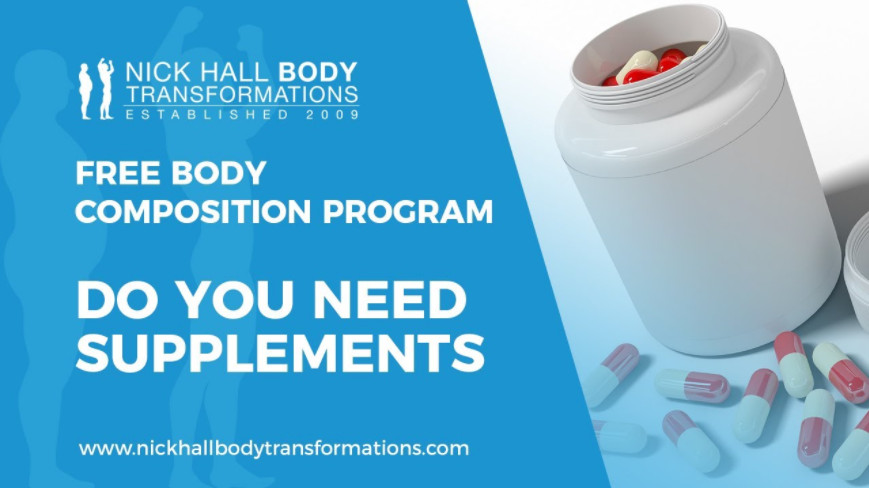we delivers enough to blog about

Do you need supplements
The supplement industry is a billion dollar industry. Supplement companies make all sorts of claims usually with little science to back up what they are purported to help you with.
In this post I’ll outlining what supplements have been found to be beneficial for either training or general health.
Training:
1. Whey protein
Has been found to help assist muscle protein synthesis and is fast digesting so it is good for getting energy into your body before a workout and straight after.
A protein supplement can also help if you are struggling to hit your daily protein requirements and it has also been found to increase insulin sensitivity.
Source: www.examine.com/supplements/whey-protein
2. Creatine
Creatine is produced in the body and is used as an energy source. It is found in meat, eggs and fish.
Taking creatine allows for more ATP production when energy demands are high such as weigh training or other maximum effort exercise.
Creatine has been shown to improve strength and power output which is ideal for resistance training.
The body doesn’t develop a tolerance to creatine so you don’t need to cycle on and off creatine. Creatine has also been found to reduce fatigue.
You can take before and after training
Has also been found to reduce fatigue
www.examine.com/supplements/creatine
3. Caffeine
Caffeine has been found to assist both strength and power output and increase energy levels. It has also been found to found to increase energy expenditure. It has also been found to increase aerobic running capacity.
Caffeine has also been found to negate the effects of sleep deprivation which is useful for early morning training sessions.
The one negative of caffeine is that you can build up a tolerance to it meaning you end up needed more and more to get the desired effect which isn’t ideal.
A good thing to do is cycle off caffeine ie take a week off every one to two months.
Caffeine is ideal to take before training and up to 400mg per day is considered safe.
Source:www.examine.com/supplements/caffeine
4. L-Citruline
L-Citrulline is an amino acid that is converted into L-arginine in the kidneys and is a more effective method of increasing L-arginine levels rather than supplementing with L-arginine
Good for higher volume training as it helps to reduce fatigue and improve endurance in both endurance and anaerobic training.
Again it best taken before training.
www.examine.com/supplements/citrulline
General health
1. Multi Vitamin
If you feel like you’re struggling to meet all your micronutrient requirements, then a good quality multi-vitamin can help. Especially if you’re in a calorie deficit or you’re vegan, vegetarian, gluten or dairy free. There is no evidence however that a multi-vitamin will make you live longer.
The soil quality that some fruit and vegetables may also affect the amount of micro-nutrients contained in these foods.
Some things you need to consider are some multi-vitamins don’t meet the RDA of some vitamins or minerals or some contain more than what is required and less of other micro-nutrients.
www.examine.com/nutrition/do-you-need-a-multivitamin
2. Zinc
Zinc is found in meat, eggs, oysters and legumes.
Zinc can also be a testosterone booster only if you are deficient in zinc. High doses of zinc can also act as an aromatase inhibitor and reduce estrogen levels.
Zinc is also an immunity booster and is lost through sweat.
The tolerable upper limit of zinc is 40mg per day.
https://examine.com/supplements/zinc/
3. Magnesium
Magnesium is the second most common deficiency in developed countries with the first being vitamin D. Good sources of magnesium such as nuts and leafy vegetables are not eaten as much as previous generations.
Magnesium deficiency can lead to increased blood pressure and reduced insulin sensitivity.
Maintaining healthy magnesium is also associated with protection against depression and ADHD.
Excessive doses can cause stomach distress and diarrhea.
Magnesium can also be useful for stress relief and may help with sleep.
https://examine.com/supplements/magnesium/
4. Vitamin D
The body produces vitamin D from cholesterol provided there is adequate amount of UV light from sun exposure. Most people are not deficient in vitamin D but do not have optimal levels either.
Supplementing with vitamin D is associated with increasing cognition, immune health and bone health. Those deficient in vitamin D may also experience an increase in testosterone levels when supplementing with vitamin D.
Vitamin D is also effective when used with vitamin K.
The safe upper limit per day in USA and Canada is 4000 IU per day with some reports quoting a safe upper limit of 10,000 IU per day.
Supplementing with vitamin D may also help elevate depression if you are deficient however research on this is questionable.
https://examine.com/supplements/vitamin-d/
5. Curcumin
Curcumin is derived from tumeric which is best known as a spice used in curry.
Curcumin has anti-inflammatory properties, can reduce pain, depression, and other problems related to inflammation. It can also increase the body’s production of antioxidants.
There is preliminary evidence that curcumin might slow the progression of some forms of cancer, reduce age-related cognitive decline, promote heart health (notably by reducing lipid levels and plaque build-up), reduce the risk of diabetes.
Curcumin is poorly absorbed so you may want to pair it with something like pipeline which is a component of black pepper.
Conclusion
This is not an exhaustive list of supplements and you should do your own research before you purchase or take anything. I’m not recommending any of these supplements I’m just giving you a snapshot of what’s out there. The source that I have used is examine.com which is very reliable for supplement research.
Our final blog post in the series can be viewed here